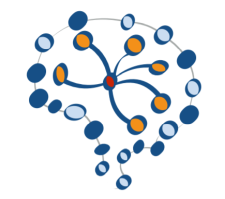| Free Resources For Machine Learning |
| Written by Nikos Vaggalis | |||
| Monday, 06 September 2021 | |||
|
A browser extension and two free courses, "Machine Learning with Graphs" from Stanford and "Introduction to Deep Learning" by Sebastian Raschka are three excellent resources for mastering Machine Learning. When going through research papers, on arXiv or otherwise, most of the time you have to go through hoops to get to the accompanying source code. CatalyzeX is browser extension, available for Chrome and Firefox, that does that for you. After enabling it,when searching through Google or visiting arXiv or Google Scholar, you'll see CODE in small letters next to the title of paper; clicking on it takes you to the code, mostly on Github. When the code is not available, you see "Request code" which brings up a page with two options: Request code directly from the authors or Get an expert to implement this paper. The extension's official site https://www.catalyzex.com/ is also a great hub for finding research papers. Have a look. Our next resource is a free course from Stanford - "Machine Learning with Graphs" using PyTorch and NetworkX. Course in this context means all the material, exercises and videos for free for anyone and not that someone can enroll. The course focuses on the underlying graph structure and its features together with machine learning techniques and data mining tools in order to reveal insights on a variety of networks. But what can you do by combining Graphs with ML? You can enhance the graphs' utility by finding patterns that a human would not discern as well as achieving better accuracy. By mixing in Neural Networks, you feed the network with graphs and at the other end you get predictions. With that you can build recommendation systems, predict disease outbreak, do social network analysis and much more. The syllabus is :
The last resource is a great collection of deep learning materials using Pytorch, from Sebastian Raschka assistant Professor of Statistics at the University of Wisconsin-Madison and author of Python Machine Learning, included in AI Books To Inspire You, which focuses on deep learning and machine learning research. The material was taught this Spring at his STAT 453 - "Introduction to Deep Learning and Generative Models". The syllabus consists of a total of 170 videos in the following topics: Part 1: Introduction L01: Introduction to deep learning
L04: Linear algebra and calculus for deep learning
L08: Multinomial logistic regression / Softmax regression
L13: Introduction to convolutional neural networks
L16: Autoencoders In contrast to "Machine Learning with Graphs", this is an introductory course targeting beginners and a real goldmine. Using Python and Pytorch makes it already worthwhile, but the amount of the material, abundance of topics, Sebastian's attention to detail and his presentation makes it a top offering. And for free too.
More InformationCatalyzeX the Firefox extension Machine Learning with Graphs-main Machine Learning with Graphs-YouTube playlist Introduction to Deep Learning and Generative Models-main Introduction to Deep Learning and Generative Models-Lecture notes Related ArticlesMicrosoft's Machine Learning for Beginners Program Deep Learning on the GPU with Triton GAN Theft Auto - The Neural Network Is The Game Yann LeCun’s Deep Learning Course Free From NYU
To be informed about new articles on I Programmer, sign up for our weekly newsletter, subscribe to the RSS feed and follow us on Twitter, Facebook or Linkedin.
Comments
or email your comment to: comments@i-programmer.info <ASIN:1789955750> <ASIN:B07VBLX2W7> |
|||
| Last Updated ( Monday, 06 September 2021 ) |


